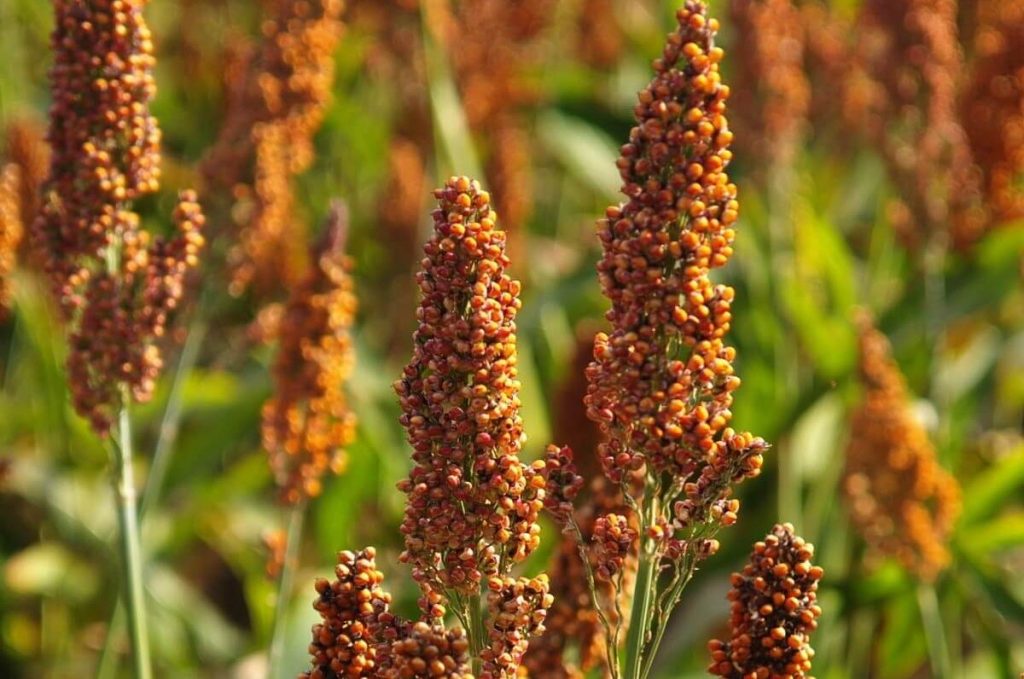An ancient grain originating in Africa, sorghum is now a very important crop for Brazil. Due to its great adaptability and its variety of benefits, growing sorghum has become a key part in managing farmland across Brazil with different altitudes, climates, and farming practices. Many Brazilian producers are using sorghum as an essential tool for their farm’s business success.
Among the different types of sorghum, grain sorghum is grown the most, reaching about 1.5 million hectares in 2022, with a continuous growth trend, as companies such as Nuseed invest and further advance the crop’s benefits. From increasing profitability and implementation of new technologies and tools Nuseed is supporting the success of local sorghum growers.
Currently, this cereal is mostly planted in seasons with less rainfall often referred to as the off-season or second crop. Even with limited moisture grain sorghum can reach top yields and high profitability for customers. Nuseed provides the most complete portfolio on the market, with a hybrid for each type of soil and planting window. In addition to further expansion of such an important crop for animal feed, sorghum also appeals to the food and beverage industry for its high nutrition, non-gluten, non-GMO profile.
Nuseed Brazil’s portfolio includes grazing sorghum seed to grow forage crops for grazing and silage which, through development and strong partnerships, have proven to be a great source of nutrition for the country’s cattle. In a short amount of time ranchers can produce high volumes of high energy feed, essential for current beef production cycles. Nuseed grazing sorghum can deliver up to 50 tons of green mass per hectare, yields previously only reached with planting corn. Today it is possible to obtain more than 10 cuts in some intensive grazing sorghum production programs, with relatively low inputs. Growing grazing sorghum has increased year over year to become a vital tool for meat and milk production.
Following the success of the grazing sorghum program, Nuseed Brazil started four years ago also growing sorghum for ground cover to increase biomass in environments of constant production. For high production systems, organic matter and good soil health practices become even more critical. Sorghum ground cover can produce several tons of dry matter per year. The program continues, including advancement of a seed mix of different ground coverings combined with sorghum, for even more advanced production of biomass and resulting soil health benefits.
There are also other types of sorghum, with smaller market size and importance, such as sweet sorghum, used to produce ethanol, and broom sorghum, which, as the name implies, is used for making brooms. Both are for regional markets and linked to cultural traditions. Additional proof of the strong market connection and adaptation of growing sorghum in a country as large and diverse as Brazil.
From north to south, in any type of area or soil, at different season and dates of planting, Nuseed has the largest portfolio of sorghum solutions in Brazil. With its variety of purposes and resilient characteristics, sorghum is filling a large demand and contributing to agricultural development in a sustainable and efficient way with value to the entire supply chain.

